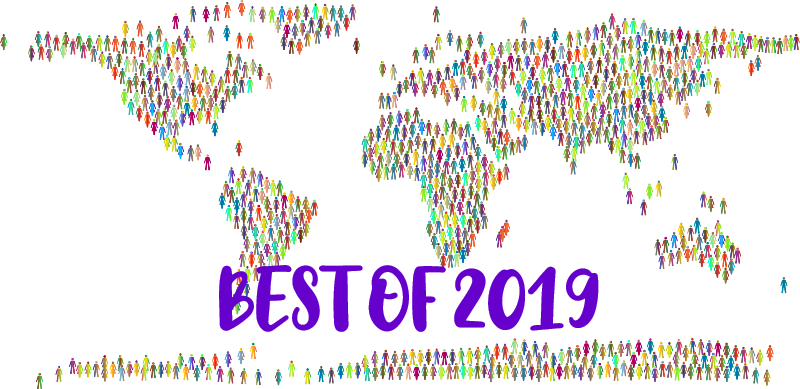
Many in our Post Alley writing group have experience in creating “best of . . .“ categories to fill column space at year’s end holiday season. It was always a lot of fun, seldom of
lasting significance, but in previous decades predictable for the domination of white men
in politics or business.
Not so, with this season’s “best of . . .” lists by our friends at the Seattle Times. Not
surprisingly, both the lists of past-decade movers and shakers and folks to watch in the
next decade were dominated by women and did not contain a single male politician.
What fascinated me in these listings, particularly the “next decade” list, was not
the gender shift, which is obvious to even a casual observer, but the increasing number of people either in nonprofit organizations or listed as “activist” in the ever-broadening field of social justice of one sort or another.
We are seeing, not only in Seattle but elsewhere, a shift in power from the traditional government/business alliances that dominated in the past, to an evolving array of nonprofits and movement-generated groups that are elbowing their way into the public discourse. This was already afoot in the 2010-2019 decade; the Times’ list includes Kshama Sawant, whose activism is social and economic justice, to neighborhood activist K. Wyking Garrett and Mary’s Place executive Marty Hartman. Many smaller
communities have leaders like this trio, dealing with the homeless, economic inequality
or climate change. The trend was furthered in the list looking ahead to 2020-2030: more women, more people of color, more activists and nonprofit leaders.
I realize that a major reason for this exercise is to call attention to folks who do
the heavy lifting with little public notice. But comparing the current lists to the ones we
made four decades ago, the difference is staggering. And it is welcome.
We realized in the last decade that our national government is badly broken and often unable to deliver goods that the majority demands. State and local governments
cannot muster resources sufficient to the task; Americans have turned to non-government solutions, which in turn call on non-traditional tactics and people.
There will be increased demands on activists and nonprofits in the decade ahead,
particularly if Donald Trump wins a second term and/or Republicans control the Senate.
Activists fighting climate change and environmental havoc will need to increase their
game. Scientists and affected communities will need to become activists; if the climate
crisis is not combatted, the other good works in the nonprofit field will become moot, for
our world will be changed in ways that cannot be undone.
The last decade’s rise of nationalism and reaction on a worldwide scale will force
citizens to take control of their destiny, both by local activism to combat inequality and by a revival of international cooperation on climate change. Paralyzed, chauvinistic national governments must change or be changed in the decade ahead.
Discover more from Post Alley
Subscribe to get the latest posts sent to your email.

My journalistic objection to these lists of influentials is that they are really exercises in market positioning, a way of reaching out to audiences who resist the newspaper. They send messages to young audiences and ethnic minorities, who normally find daily newspapers irrelevant. The same charge could be leveled at Awards Ceremonies, such as Crosscut’s annual Courage Awards.
List making was always an attempt to fill a void. What do you do on a slow news day or when you’re too lazy to cover real events? Seattle’s mags have overdone it — the 12 best neighborhoods, the 7 best brew pubs, the 10 best chicken sandwiches. Could be a sign of coming demise. Say it isn’t so, please.
The word “best” is a beast. Best to avoid it!
It’s also an absolute. I always cautioned reporting students against using absolutes such as “always” or “never”, or “best” or “worst” without quoting a source. The major
(not “only”) exception to the rule is when used in a direct quote: as in Donald Trump said he is the best president ever, who never made a mistake and always tells the truth.
“I always cautioned reporting students against using absolutes such as “always” or “never”, or “best” or “worst” without quoting a source. ”
Thank you. I’m the contrary type, and whenever someone tells me that they’re the first to do something, I’m out there looking for a counterexample.
It’s hard to break the habit of besting and worsting. For many years our lamented Village Voice dumped the adjectives and handed out annual “Obies” to artists and groups who had excelled that season and tho hell with categories. The Voice found few emulators anywhere in the whole spectrum of American journalism. There’s something about superlatives that conquers common good sense.